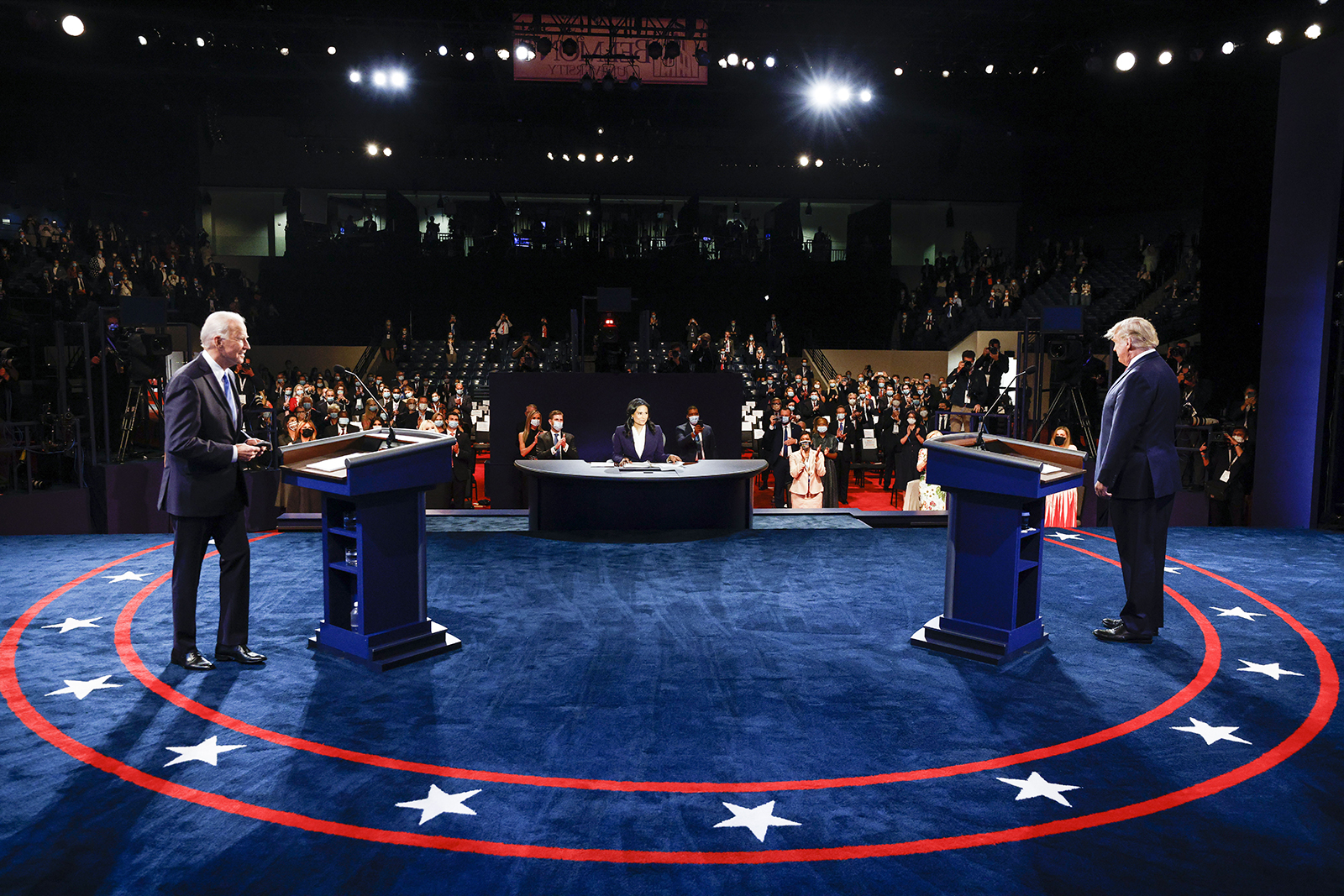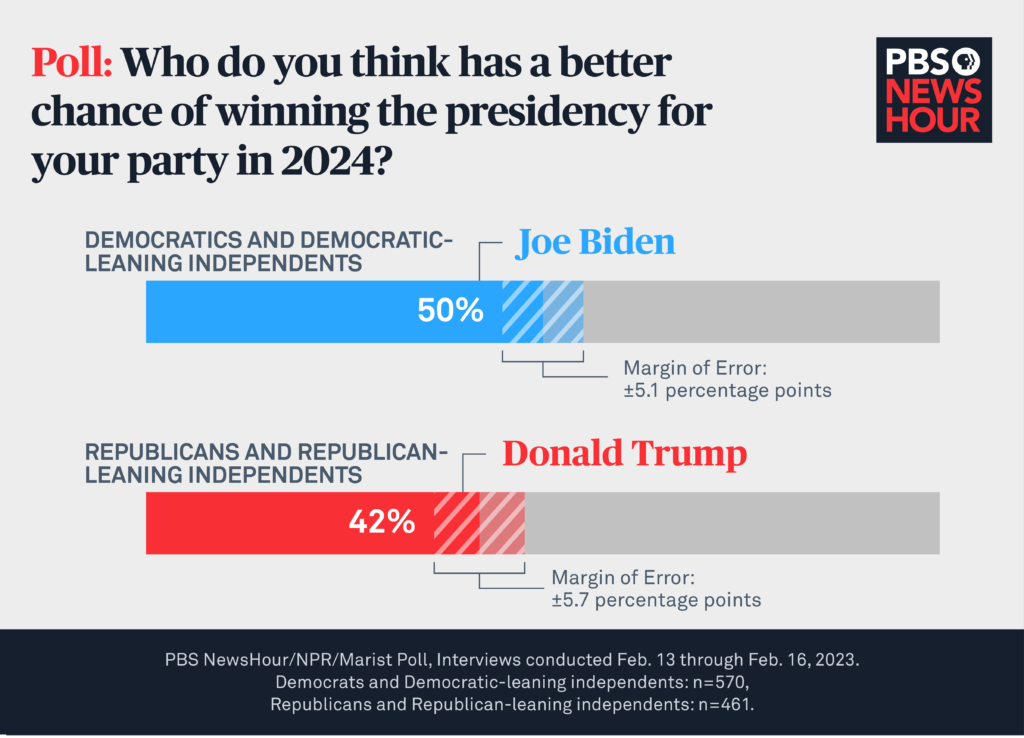Examining the Candidates’ Strategies and Performance

The presidential debate provided a platform for the candidates to present their visions for the nation and engage in a public dialogue on key issues. This analysis examines the candidates’ strategies, communication styles, policy positions, and any weaknesses exposed during the debate.
Candidate A’s Strategy and Performance
Candidate A adopted a strategy focused on highlighting their experience and leadership qualities. They emphasized their record in office, particularly their handling of the economy and national security. Candidate A’s communication style was direct and assertive, often using strong language and forceful delivery. Their policy positions were generally conservative, emphasizing fiscal responsibility and limited government intervention.
Candidate B’s Strategy and Performance
Candidate B focused their strategy on appealing to voters who are concerned about social issues and economic inequality. They presented themselves as a champion for the working class and marginalized communities. Candidate B’s communication style was more empathetic and inclusive, often using personal anecdotes and emotional appeals. Their policy positions were generally progressive, emphasizing social justice, environmental protection, and expanded social programs.
Effectiveness of Communication Styles
Candidate A’s communication style was effective in conveying their message of strength and experience. Their assertive delivery resonated with voters who value decisive leadership. However, their directness and forceful language could have alienated some voters who prefer a more nuanced and diplomatic approach.
Candidate B’s communication style was effective in connecting with voters who are concerned about social issues and economic inequality. Their empathetic and inclusive approach resonated with voters who value compassion and understanding. However, their reliance on emotional appeals could have been perceived as lacking substance by some voters.
Impact of Policy Positions and Arguments
Candidate A’s policy positions were generally well-received by voters who favor conservative economic policies. Their emphasis on fiscal responsibility and limited government intervention resonated with voters who believe in individual liberty and self-reliance. However, their positions on social issues, such as abortion and gun control, were less popular with voters who hold more progressive views.
Candidate B’s policy positions were generally well-received by voters who favor progressive social and economic policies. Their emphasis on social justice, environmental protection, and expanded social programs resonated with voters who believe in government intervention to address societal problems. However, their positions on economic issues, such as raising taxes on the wealthy, were less popular with voters who favor lower taxes and less government regulation.
Weaknesses and Vulnerabilities
Candidate A’s main weakness was their lack of detailed policy proposals on some key issues, such as climate change and healthcare. Their reliance on generalities and platitudes could have left some voters unconvinced of their ability to address these complex challenges.
Candidate B’s main weakness was their lack of experience in government, which some voters may have perceived as a liability. Their reliance on emotional appeals could have also been seen as lacking substance by some voters.
Assessing the Debate’s Media Coverage and Public Reaction: Whos Winning In The Presidential Debate

The presidential debate was a major media event, generating widespread coverage and sparking public discussion. Media outlets dissected the candidates’ performances, analyzed their arguments, and assessed the potential impact of the debate on the election. Social media platforms buzzed with reactions from viewers, fueling further discourse and analysis. This section examines the dominant narratives emerging from media coverage, analyzes social media reactions and public discourse surrounding the debate, and explores the potential long-term implications of the debate’s impact on the election.
Dominant Narratives in Media Coverage
The media coverage of the debate reflected a range of perspectives and interpretations. Some outlets focused on the candidates’ performance, highlighting moments of strength and weakness, while others emphasized specific policy positions or clashes on key issues.
- Candidate Performance: Many media outlets analyzed the candidates’ performances, focusing on their demeanor, communication style, and ability to articulate their positions. For example, some commentators praised one candidate for their calm and collected approach, while others criticized another for appearing defensive or evasive.
- Policy Positions: The debate provided a platform for the candidates to present their stances on key issues. Media coverage often centered on specific policy areas, such as healthcare, the economy, or foreign policy. For instance, some outlets focused on the candidates’ proposals for addressing healthcare costs, while others analyzed their positions on trade or immigration.
- Debate Dynamics: Some media outlets focused on the overall dynamics of the debate, highlighting moments of tension, disagreement, or even civility between the candidates. For example, some commentators noted the candidates’ willingness to interrupt each other or the moderator’s efforts to maintain order.
Social Media Reactions and Public Discourse
Social media platforms became a vibrant hub for public reaction and discussion following the debate. Users shared their thoughts on the candidates’ performances, debated key issues, and engaged in broader political discussions.
- Candidate Popularity: Social media reactions often reflected public sentiment toward the candidates. Some users expressed support for one candidate or another, while others voiced criticisms or concerns. The volume and nature of these reactions could offer insights into the candidates’ relative popularity and the public’s perception of their performance.
- Issue-Specific Debates: Social media platforms also facilitated discussions on specific policy issues raised during the debate. Users debated the merits of different proposals, shared their perspectives on key challenges, and engaged in constructive dialogue on matters of public concern. This online discourse could provide valuable insights into the public’s priorities and concerns.
- Political Polarization: The debate also highlighted the deep political divisions within society. Social media reactions often reflected partisan loyalties and pre-existing political biases. Users frequently engaged in heated exchanges, reinforcing existing divisions and contributing to the broader political polarization.
Potential Long-Term Implications for the Election
The debate’s impact on the election remains to be seen. However, the media coverage and public reaction provide insights into the potential long-term implications.
- Shifting Public Opinion: The debate could potentially influence public opinion on key issues or the candidates themselves. For example, a strong performance by one candidate could boost their popularity and increase their chances of winning. Conversely, a weak performance could damage a candidate’s image and hurt their chances of success.
- Campaign Strategy: The debate’s coverage and public reaction could also inform future campaign strategies. For example, candidates might adjust their messaging or focus on specific issues based on the public’s response to their performance in the debate. The media’s emphasis on certain topics could also influence the campaign’s priorities.
- Voter Turnout: The debate could potentially impact voter turnout. A highly anticipated or controversial debate could increase public interest in the election and motivate voters to participate. Conversely, a dull or uneventful debate could dampen voter enthusiasm and potentially lead to lower turnout.
Debate Coverage’s Influence on Future Campaign Strategies, Whos winning in the presidential debate
The media coverage of the debate provides valuable insights into how campaigns might adapt their strategies for future events.
- Media Management: Candidates and their teams will likely pay close attention to the media’s focus and narrative surrounding the debate. They might adjust their messaging or communication strategies to address specific criticisms or concerns raised by the media. For example, a candidate who received negative coverage for their handling of a particular issue might try to clarify their position or emphasize their strengths in that area.
- Social Media Engagement: The importance of social media engagement has become increasingly evident. Candidates will likely seek to leverage social media platforms to connect with voters, address concerns, and counter negative narratives. They might also use social media to amplify their message and reach a wider audience.
- Debate Preparation: The debate’s coverage and public reaction could also influence the candidates’ preparation for future debates. They might focus on specific issues or topics that received significant attention or prepare for potential attacks or criticisms. For example, a candidate who was criticized for their lack of experience might devote more time to highlighting their qualifications or accomplishments.
Whos winning in the presidential debate – While the presidential debate unfolds, it’s easy to get caught up in the back-and-forth rhetoric. But amidst the political noise, it’s important to remember the complexities of global conflicts, such as the ongoing struggle between Israel and Hamas. Understanding the relationship between these two entities, as outlined in this article on Israel Hamas leaders , can offer valuable perspective on the broader political landscape and remind us that the issues at stake are far-reaching and interconnected.
Ultimately, the presidential debate, while important, is just one facet of a larger global conversation.
While the political landscape is a battleground, a different kind of fight is taking place globally. The World Health Organization ( who covid 19 ) has been tirelessly working to combat the COVID-19 pandemic, reminding us that our collective efforts are crucial.
As we watch the presidential debate unfold, let us remember that the true victory lies in working together to overcome the challenges we face, both domestically and internationally.
